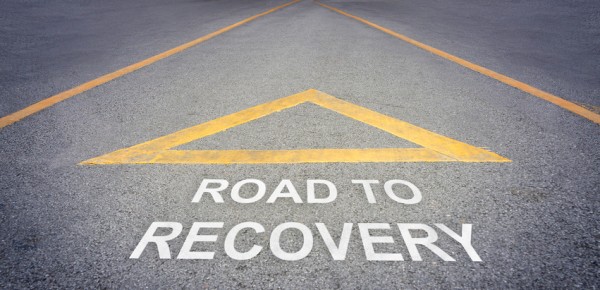Understanding the stages of recovery is essential for addictions counsellors. That’s because when an individual is recovering from an addiction to drugs (including alcohol), gambling, or another sort of behaviour, they’ll often pass through seven stages on their journey to recovery, fulfilment, and happiness. Knowing these stages helps counsellors identify where the client is in the recovery process and which techniques will work best for their needs and continued progress.
Rhodes Wellness College instructor, Marc Keith, is a firm believer that knowing the stages of recovery is important for aspiring addictions counsellors. Marc is an experienced Registered Clinical Counsellor who has served as an Alcohol and other Drug Prevention Educator with Vancouver Coastal Health’s Child and Youth Mental Health Team, in addition to working as a Youth Services Supervisor for the Parkgate Community Services Society. Today, Marc instructs first and second year students at Rhodes Wellness College and offers counselling services to youth, couples, and families.
If you’re interested in a career as an addictions counsellor, read on to learn more about the stages of recovery.
The Importance of Knowing the Recovery Steps During Your Addictions Counsellor Career
At Rhodes Wellness College, students learn the Prochaska and Diclemente Transtheoretical Model of Change in their Addictions Counsellor Courses. Through lectures, case study presentations, and a challenging journaling activity, students explore each stage of the model of change and how it will impact their future clients (Keith, 2017).
In addition to helping students better serve their clients, the Prochaska and Diclemente Transtheoretical Model of Change also provides common terminology used by many healthcare professionals. As Marc says, “One of the reasons we teach this particular model is because the large health authorities in British Columbia speak this language. So, it allows context and continuity of care for clients because we’re speaking the same language as them.” He explains that, “You also might refer clients to a rehab center or a transition program, so it’s important you speak the same language about where your client is in the stages of change and recovery.” (Keith, 2017)
The Stages of Change You’ll Learn in Your Addictions Counsellor Courses
According to the Prochaska and Diclemente Transtheoretical Model of Change, the seven stages of recovery are the following:
- precontemplation
- contemplation
- planning
- action
- maintenance
- termination
- relapse
During the first stage of recovery, Marc says that, “An individual recognizes there’s a particular behaviour in their life, but they don’t believe it’s a problem. They might have a marginal understanding of how it’s impacting their life, but they’re not motivated to change it at all”.
In the precontemplation stage, clients are aware of their behaviour, but don’t think it should change
However, once the client moves into the contemplation stage, they’ll start to realize that they have an addiction that is negatively impacting their life. They may recognize they need to make a change, but might not yet know where to begin. After contemplation, the client will then enter the planning stage. During this stage, they could make a plan to change their routine, avoid triggers, and more (Keith, 2017).
After planning, clients move on to the action stage where they begin to change their addictive behaviour. According to Marc, this can be one of the hardest stages for clients because of the physical and mental withdrawal symptoms that often arise. After this stage, Marc explains, comes the maintenance stage which involves working to prevent relapse and revisiting the planning stage if something isn’t working.
After successfully changing behaviours and establishing new patterns comes the termination stage. “Termination is typically the completion of counselling,” Mark explains, “New behaviours are incorporated into life, and there are no unmanageable cravings anymore. Termination comes after a long haul, and a lot of counselling and follow-up counselling sessions.” (Keith, 2017)
Marc adds that if you picture the model as a circle, relapse (the seventh stage) fits into the center. Many individuals who struggle with addiction will typically relapse on their journey to recovery. When a client relapses, the counsellor helps guide them back to the planning stage, so they can look at what went wrong and make a plan to move forward again (Keith, 2017).
The Role You’ll Play After Earning Your Diploma in Addictions Counselling
Professionals with a Diploma in Addiction Counselling play a crucial role in their clients’ recovery, from the precontemplative stage all the way to the termination stage. “It’s useful to have the counsellor around for the whole process. In the beginning, you may be a case manager and a counsellor. You’re helping your client establish other helping relationships and connecting them to other resources,” Marc explains.
As the client moves through the stages of recovery, counsellors use various techniques to help ease each transition. “Motivational interviewing is a significant technique particularly in the precontemplative and contemplative stages. In the precontemplative stages, we also do things like consciousness raising, using screeners that we introduce in addictions counselling, and decisional balance grids to help people see and get in touch with their own change talk.” Marc says, “We might pull a couple [techniques] from family systems therapy and look at their extended family to see if there’s a genetic component or past trauma. It gets really complicated. It’s not just about addictions anymore. It can be about an underlying health issue or trauma.” (Keith, 2017) With the help of these techniques and a thorough understanding of the different stages of change, addition counsellors help guide their clients towards recovery.
Do you want to complete your addictions counselling training in Vancouver?
Contact Rhodes Wellness College to get started on this rewarding career path!
Works Cited
Keith, M. (2017, May 23). Registered Clinical Counsellor. (J. Stafford, Interviewer)











